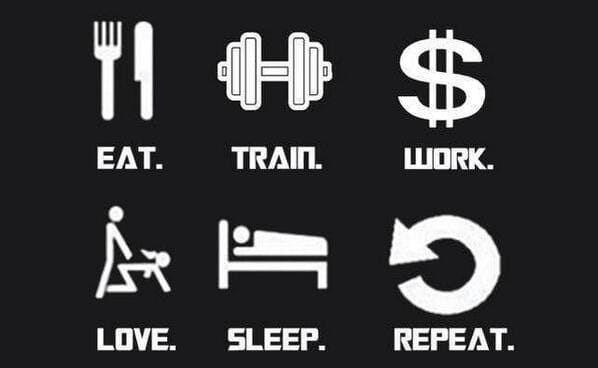Successful people are sticklers for routines, but why is that? In this article, we are going to talk about why having a daily routine is important to your overall well-being and success. The word “routine” alone can send a shudder down some people spine. It makes them think of a strict day with no room for fun, free time, or spontaneity. In fact, life can even be easy breezy (and fun, and carefree) once you get yourself on a good routine. That might be hard to wrap your head around, especially if you revolt against too much organisation, but take a second and imagine what your work day would be like if there was no routine — no rules, nothing expected of you, no set hours to be there. That might sound kinda fun, but in reality it would be pure chaos. Nothing would ever get done, people would be upset and confused, and the whole thing would fall apart. That’s sort of how life can get when you don’t have any structure. It sounds good at first, but really it just ends up being a stressful mess. If you want to reign in your crazy life, and finally adopt a daily a schedule, then here are some of the other wonderful benefits you’ll see. (I promise, it’s not scary at all.) Provides structure Routine provides a sense of structure and familiarity. Structure is a way of organising your life so that it makes sense to you. You wake up with a sense of ownership, order, and organisation of your life. One of the more convenient reasons why structure is important is because it negates the need to regularly schedule your days ahead of time. You already know what you are doing each and every day. Once you are finished with a task, you already know what is next on your schedule. This structure provides direction in your life, enabling you to act instead of standing still because of a lack of direction or decision paralysis. My top tip – Lists. Oh I love a good list. Everyday with so many balls in the air, from tonnes of admin or varying levels of importance, coaching, cleaning, training, cooking etc I will make daily lists and prioritise them and set a time line for when they must be complete and I cannot move on unless the preceding one is ticked off. 
In fact, a solid daily routine is so good for mental health it has been used to help treat people with bipolar disorder. According to Salynn Boyles on WebMD.com, “Researchers from the University of Pittsburgh School of Medicine report that bipolar patients fared better when their treatment stressed the importance of establishing daily routines for things like sleeping and eating. 
A routine negates the act of having to will or motivate yourself to do something. Willpower is finite and motivation is not constant. That is why relying on routine to accomplish tasks is a lot easier than relying on willpower and motivation. Yes, when establishing a routine, you do have to will and motivate yourself to get stick the the routine. But once the routine is set, it is on autopilot and the need for constant willpower and motivation is no longer necessary. Builds momentum Routinely doing something every day, even if it is just a little bit, builds big momentum in the long run. There is a quote that goes “little by little, a little becomes a lot.” And I find that to be true for almost everything in life. Although the benefits of doing something every day are small, the payoff is huge after awhile. Prepping your breakfast at night and having your clothes ready for the morning can save 10 much needed extra minutes asleep in the morning. Having prepared chopped vegies can make mid week meals a breeze saving time and energy. It helps you become good at things Developing a routine will help you become faster and more adept at what you do each and every day. If you are constantly writing each and every day, you will become a better writer. If you are constantly Programmeming, you will become a better Programmemer. 


